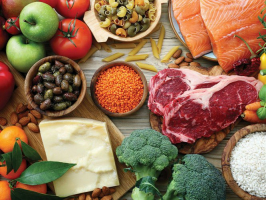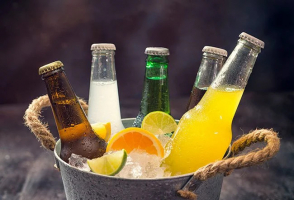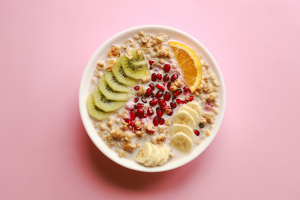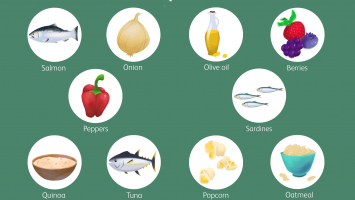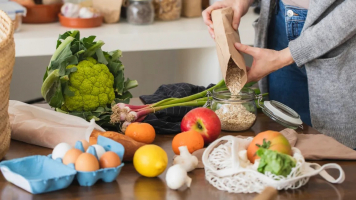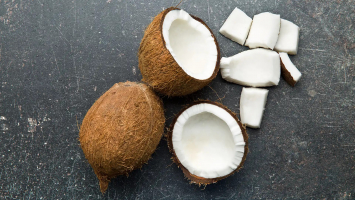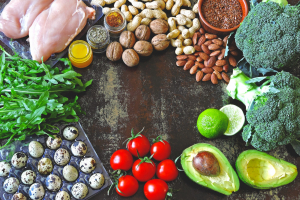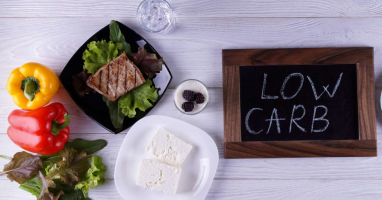Top 10 Healthy Non-Carbonated Beverages to Quench Your Thirst
All of your body functions require proper hydration. It should come as no surprise that not drinking enough can affect your brain function, mood, energy ... read more...levels, and even your skin's health. Besides water, you may find something more healthy sources of hydration that you can drink every day, especially if you’re tired of carbonated drinks, like club soda. Here are some of the healthiest non-carbonated drinks you may drink to stay hydrated!
-
If plain water is too boring for you, flavored water may be a tasty alternative. Many people have adjusted their regular water drinking habits over time. Water flavoring may be done both artificially and naturally. Artificially flavored water may harm the body, but all-natural flavored water, with its numerous nutrients, vitamins, and minerals, can help boost the immune system.
Add a few slices of lemon, lime, cucumber, or oranges, as well as a few mint leaves, to make this at home. Without any added sugar or artificial sweeteners, these healthful all-natural ingredients may go a long way toward making water taste better. Frozen berries or a splash of your favorite juice could also be added to your glass. You can add a slice of lemon to your reusable water bottle as a garnish.
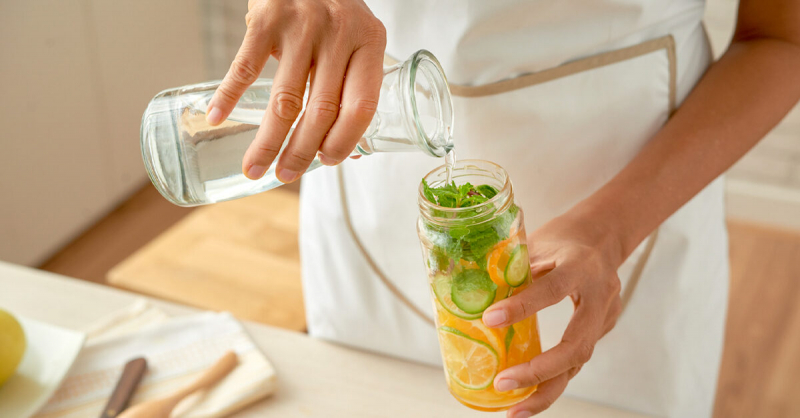
Flavored water 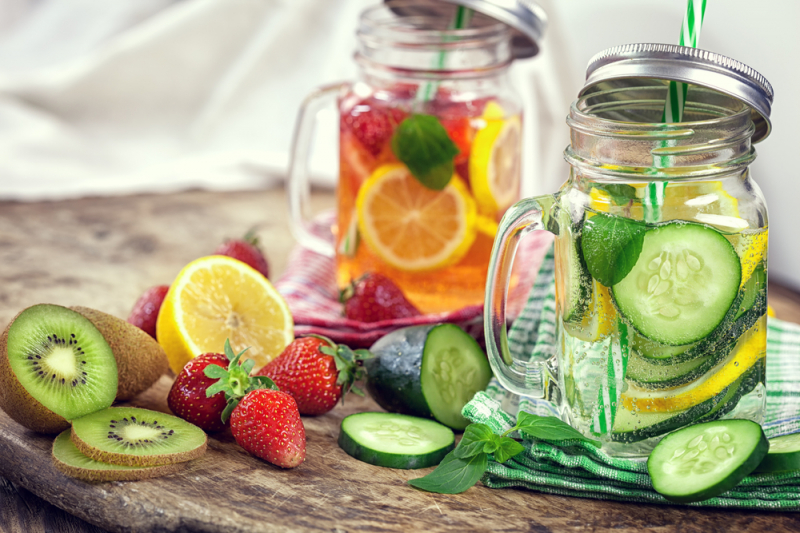
Flavored water -
Tea, whether black, green, or white, is high in antioxidants and plant compounds that may help in inflammation reduction. Teas may be able to protect your body from some diseases and help lower your blood pressure, blood sugar levels, and symptoms of polycystic ovary syndrome (PCOS).
According to studies, drinking tea on a daily basis might help you lose weight and lower your blood pressure. Teas may potentially lower your chances of developing heart disease, diabetes, and some cancers. Traditional teas can be replaced with herbal teas, which are caffeine-free. Herbal teas, unlike black, green, and white teas, which are all made from the Camellia sinensis plant, can be made from a variety of other plants. Herbal options that are popular include lavender, chamomile, spearmint, ginger, or hibiscus.
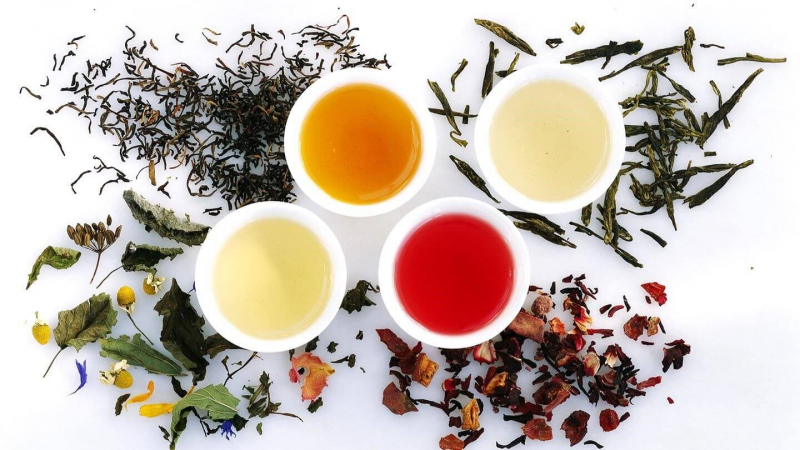
Tea or herbal infusions 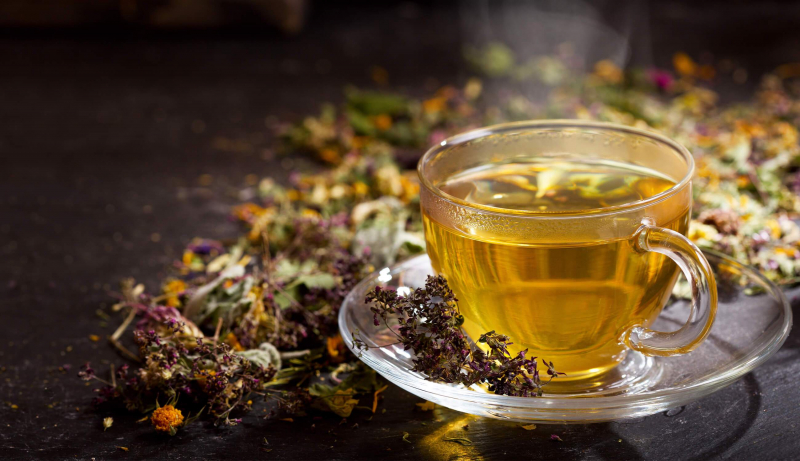
Tea or herbal infusions -
Coffee is one of the most commonly consumed beverages on the planet. Coffee, like tea, may be served hot or iced, making it a year-round choice. Coffee contains a lot of caffeine and is a good source of B-vitamins, manganese, potassium, magnesium and phosphorus.
It's also been linked to a reduction in the risk of heart disease, type 2 diabetes, liver disease, and cancer. Coffee use on a regular basis may lower your risks of having a stroke or developing dementia or Alzheimer's disease. Researchers believe that drinking 3 to 4 cups of coffee per day, the equivalent of 400–800 mg of caffeine, provides the most health benefits. Caffeine should not be consumed in excess of 400 mg per day, according to health experts. As a result, remaining on the lower end of that range could be the best bet.

Coffee 
Coffee -
According to studies, eating enough fruits and vegetables each day lowers the risk of chronic diseases and helps in the maintenance of healthy body weight. However, many people do not consume the recommended amount of fruits and vegetables on a regular basis. If you're one of the many people who find it difficult to consume enough fruits and veggies each day, incorporating smoothies into your diet may be beneficial.
Smoothies are high in vitamins, minerals, and beneficial plant compounds, making them a great source of hydration. Plus, smoothies may be made with almost any combination of ingredients you have in your refrigerator or freezer. However, since healthy hydration remains an important priority, you should eat at least one serving of fresh fruit, a calcium source such as milk or plant milk, and some leafy greens. Consider adding a few spoonfuls of flaxseed or chia seeds for an extra boost of protein, fiber, and essential omega-3s.
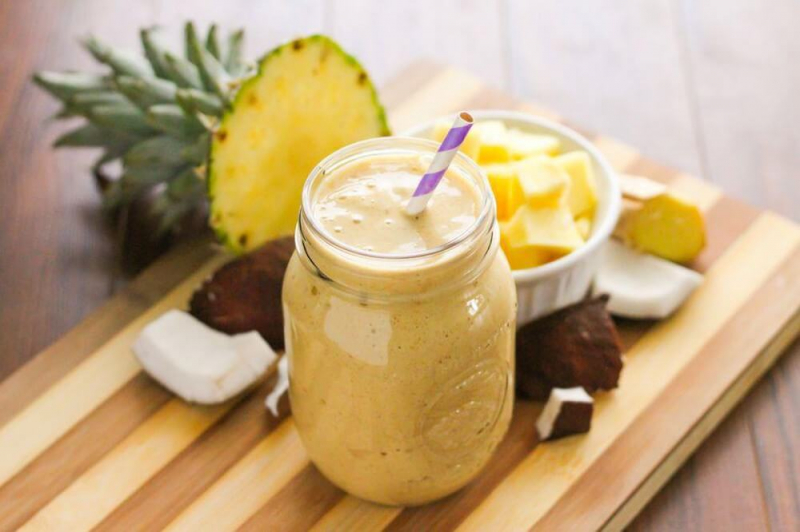
Smoothies 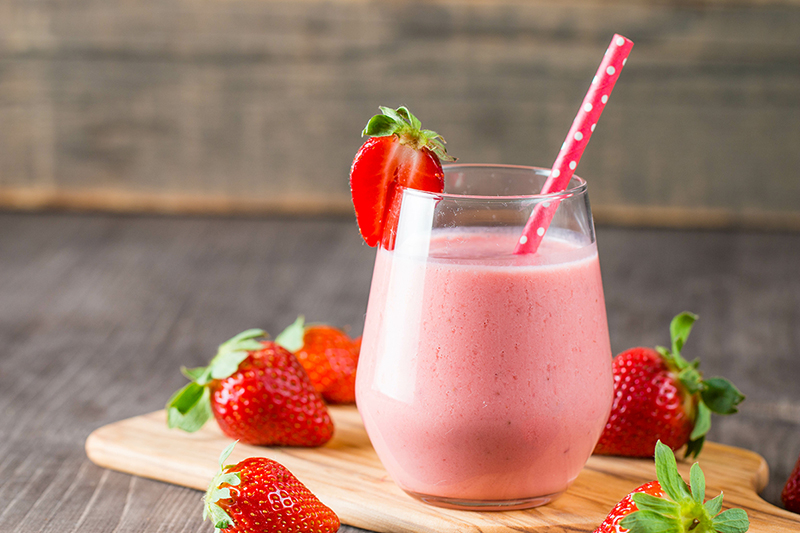
Smoothies -
Another healthy non-carbonated alternative to water is vegetable juice. Vegetable juice is a simple way to get a few extra vegetable servings into your day. Apart from some nutrients and fiber, the juice provides some of the benefits of vegetables if you find it difficult to eat enough of them.
When vegetables are cut or juiced, they lose part of their nutrients, much like fruits. As a result, homemade vegetable juice is often superior to store-bought versions. Keep in mind that store-bought vegetable juice usually has a lot of salt in it. If you prefer to buy it rather than make it, look for a low-sodium variety.
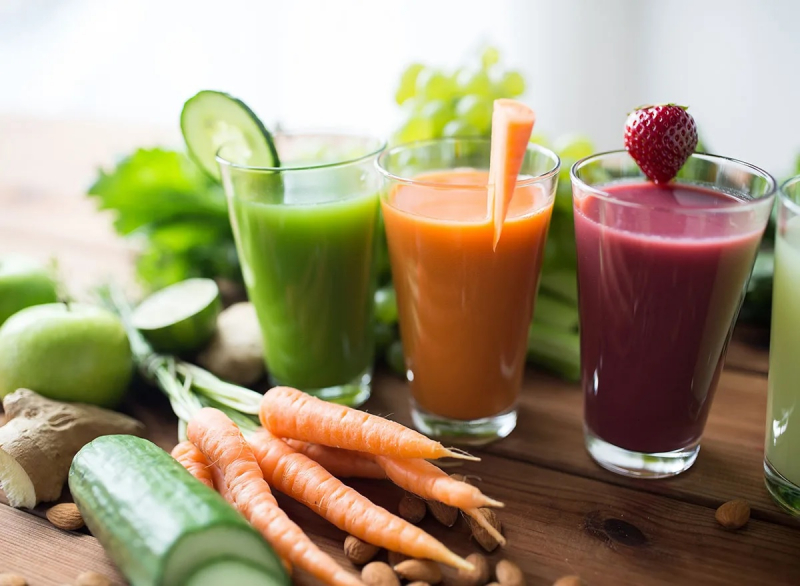
Vegetable juice 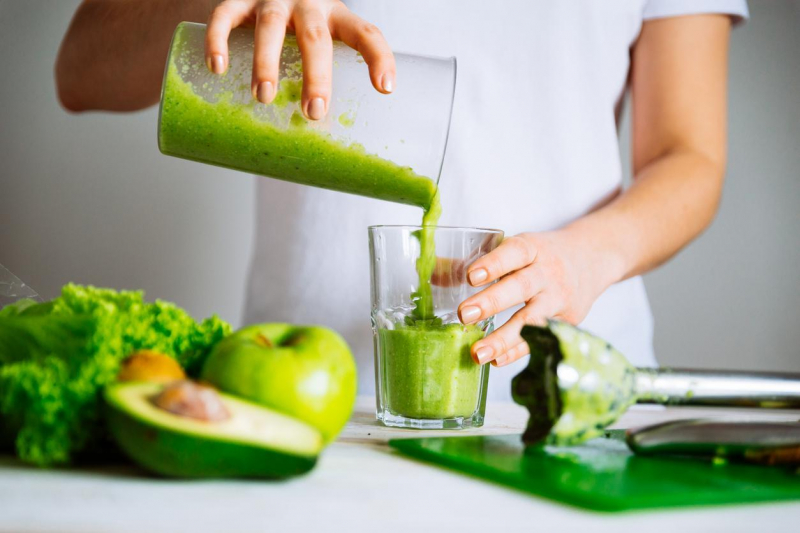
Vegetable juice -
Coconut water is the clear liquid contained within a coconut and is a great source of hydration. It includes sodium, potassium, calcium, and magnesium and is naturally low in sugar. Because of these compounds, you may have heard of coconut water as a natural source of electrolytes.
All of these electrolytes make coconut water ideal for hot days or strenuous workouts. Coconut water may also be used as a base for smoothies, chia pudding, or as a substitute for tap water when a sense of sweetness is desired. If you have access to fresh coconuts, poke a hole in the black indentations, or eyes, on the top of the fruit using a sharp knife, metal skewer, or screwdriver to enjoy it.
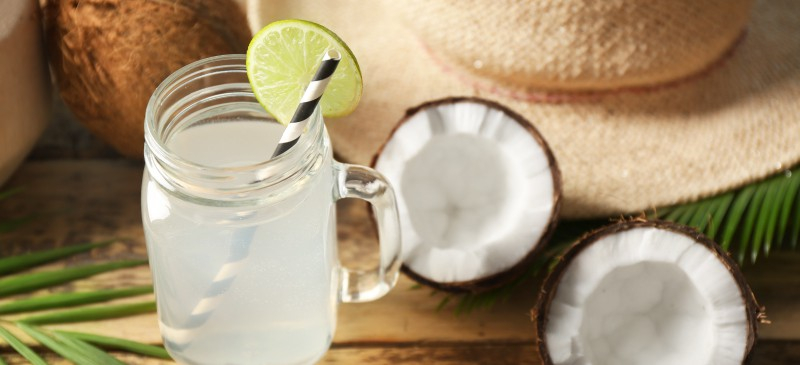
Coconut water 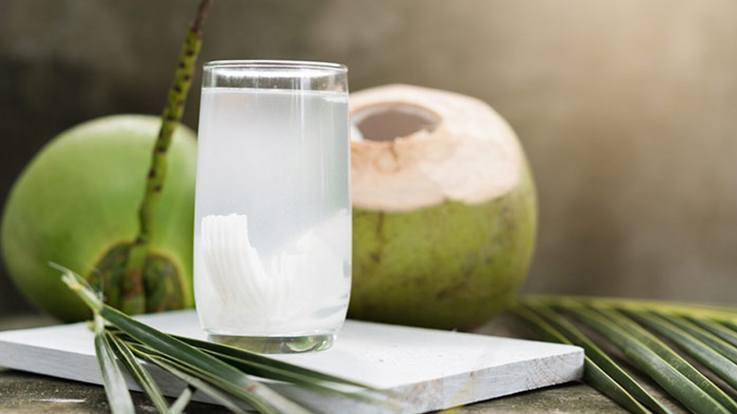
Coconut water -
A glass of milk is a good source of protein and calcium. It has a great amount of riboflavin, phosphorus, iodine, vitamin B12 and vitamin D. Drinking milk and dairy products may prevent osteoporosis and bone fractures and even help you maintain a healthy weight.
You may drink milk or plant-based milk on its own or use it as a smoothie base. For people who follow a plant-based diet, fortified soy-based beverages provide a nutritious alternative to cow's milk. Plant milk made from ingredients other than soy, such as almonds or oats, provides less protein than soy milk. This milk, on the other hand, gives calcium as well as vitamins B12 and D. It's crucial to choose fortified options because non-fortified options are empty of calcium and vitamins.
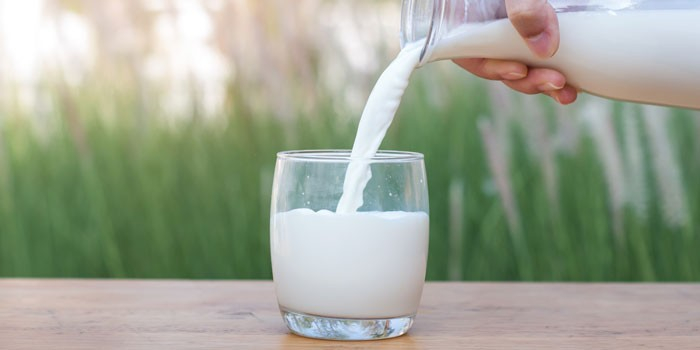
Milk or plant-based alternatives 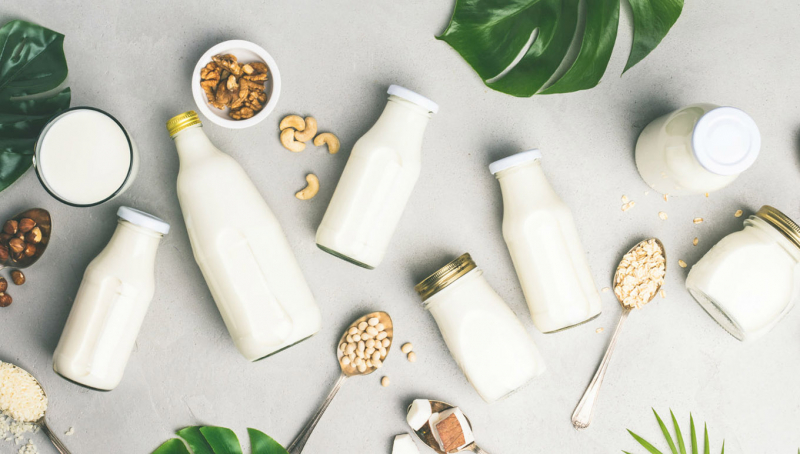
Milk or plant-based alternatives -
Kombucha is a tea-based fizzy sweet-and-sour beverage. Kombucha has an almost 2,000-year history. It was in China and quickly spread to Japan and Russia. In the early twentieth century, it gained popularity in Europe.
Yeast, sugar, and black tea are the main ingredients in kombucha. For a week or more, the mixture is placed away. Bacteria, acids, and a small amount of alcohol form in the drink during this period. Fermentation is the term for this process, which is similar to how cabbage is kept as sauerkraut or kimchi, or milk is turned into yogurt. These bacteria and acids form a film on top of the liquid called a SCOBY (symbiotic colony of bacteria and yeast). A SCOBY may be used to ferment more kombucha. Lactic-acid bacteria, which can serve as a probiotic, are found in kombucha microorganisms. Kombucha also has a good amount of B vitamins. It is said to aid digestion, remove toxins from the body, and boost metabolism. It's also said to strengthen your immune system, promote weight loss, prevent high blood pressure and heart disease, and fight cancer.
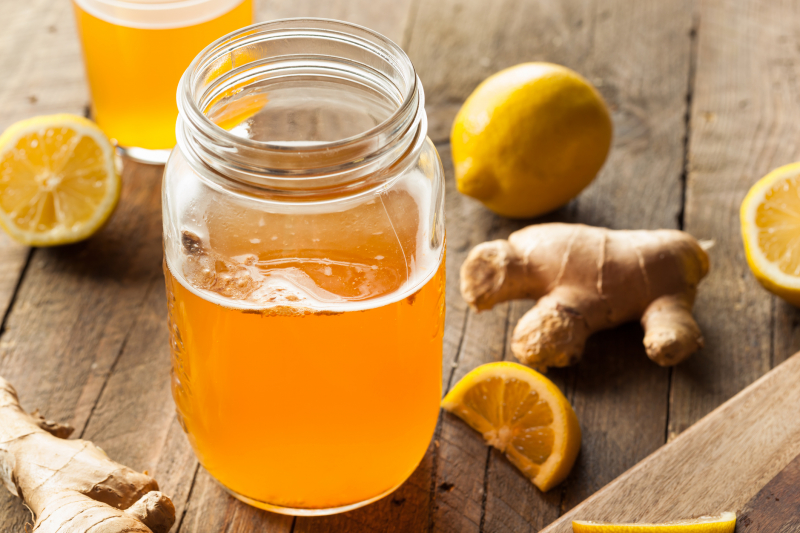
Kombucha 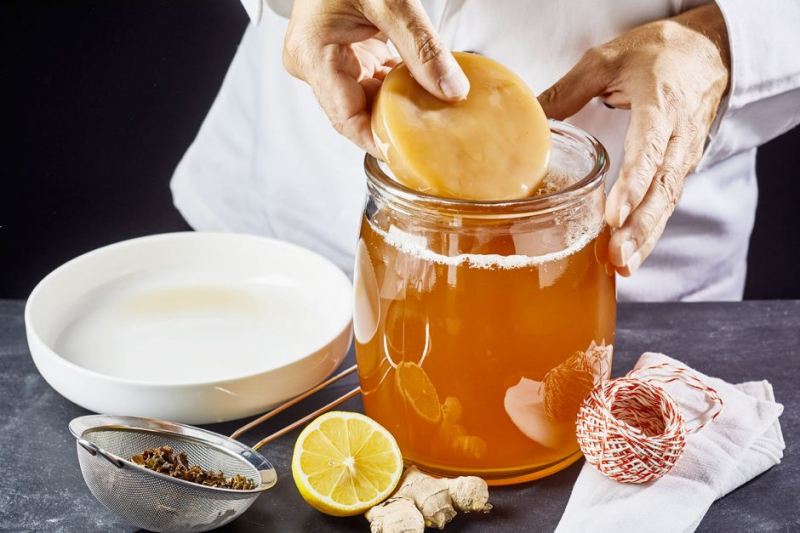
Kombucha -
Fruit juice is regarded as being as unhealthy as sugary soda. While both beverages have roughly 110 calories and 20–26 grams of sugar per cup (240 mL), pure fruit juices deserve more recognition as nutritious but sugary beverages.
Fruit juice, unlike sodas with added sugar, gets all of its natural sugar from the fruits. Fruit juice also includes vitamins, minerals, and beneficial plant compounds that are lacking in soda. This might explain why processed soft drinks, such as soda, have been associated with an increased risk of type 2 diabetes, metabolic syndrome, and heart disease, although natural fruit juices haven't. According to some studies, drinking small amounts of juice on a daily basis, less than 5 ounces (150 mL), may reduce your risk of type 2 diabetes and heart disease. Keep in mind that this does not apply to larger servings or fruit drinks with added sugar.
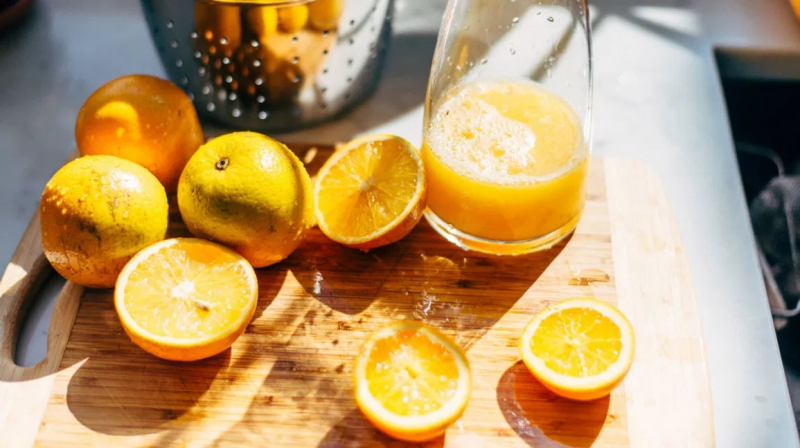
100% fruit juices 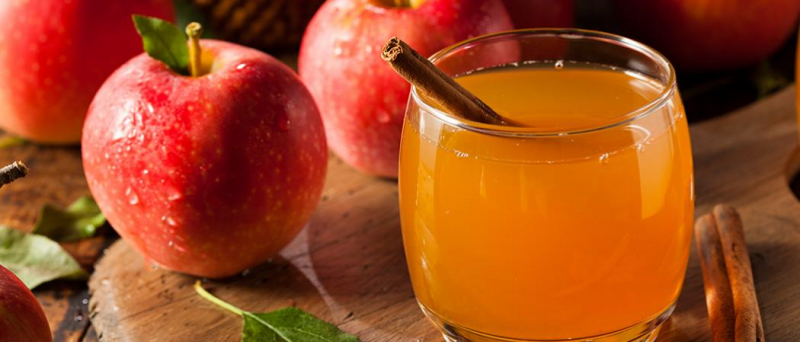
100% fruit juices -
Soups and broths, though not often considered beverages, may be an excellent way to stay hydrated. Soups and broths are primarily water, but they also include vitamins, minerals, and electrolytes.
During the colder months of the year, they're a particularly interesting choice to consider. Cold soups, such as gazpacho, may, however, be a refreshing summer dish. Hydrating soups include vegetable broth, mushroom broth, tomato, cauliflower, carrot, broccoli, and zucchini soups. Soups and stews made from scratch contain more nutrients. If you're busy, store-bought versions might be a good substitute if you choose a lower-sodium version.
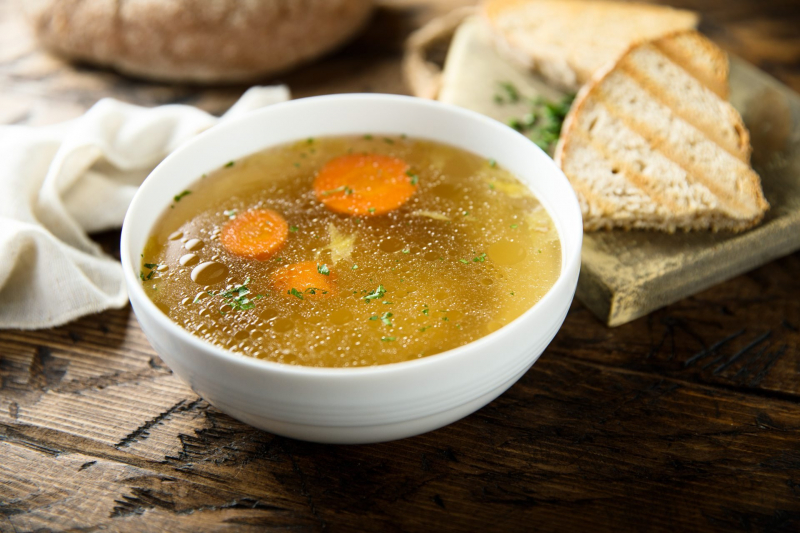
Soups or broths 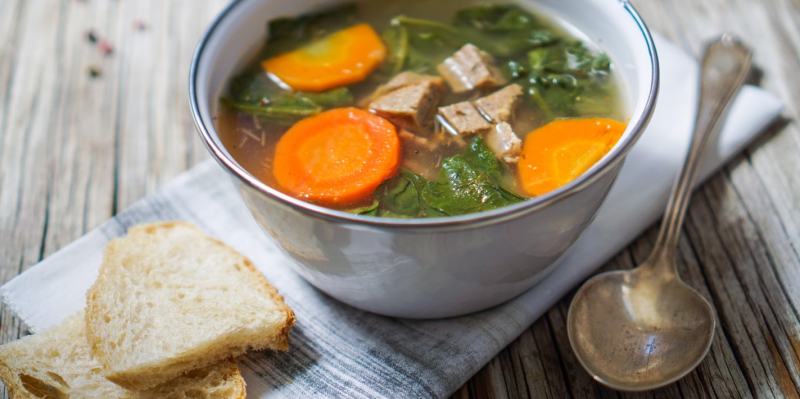
Soups or broths














